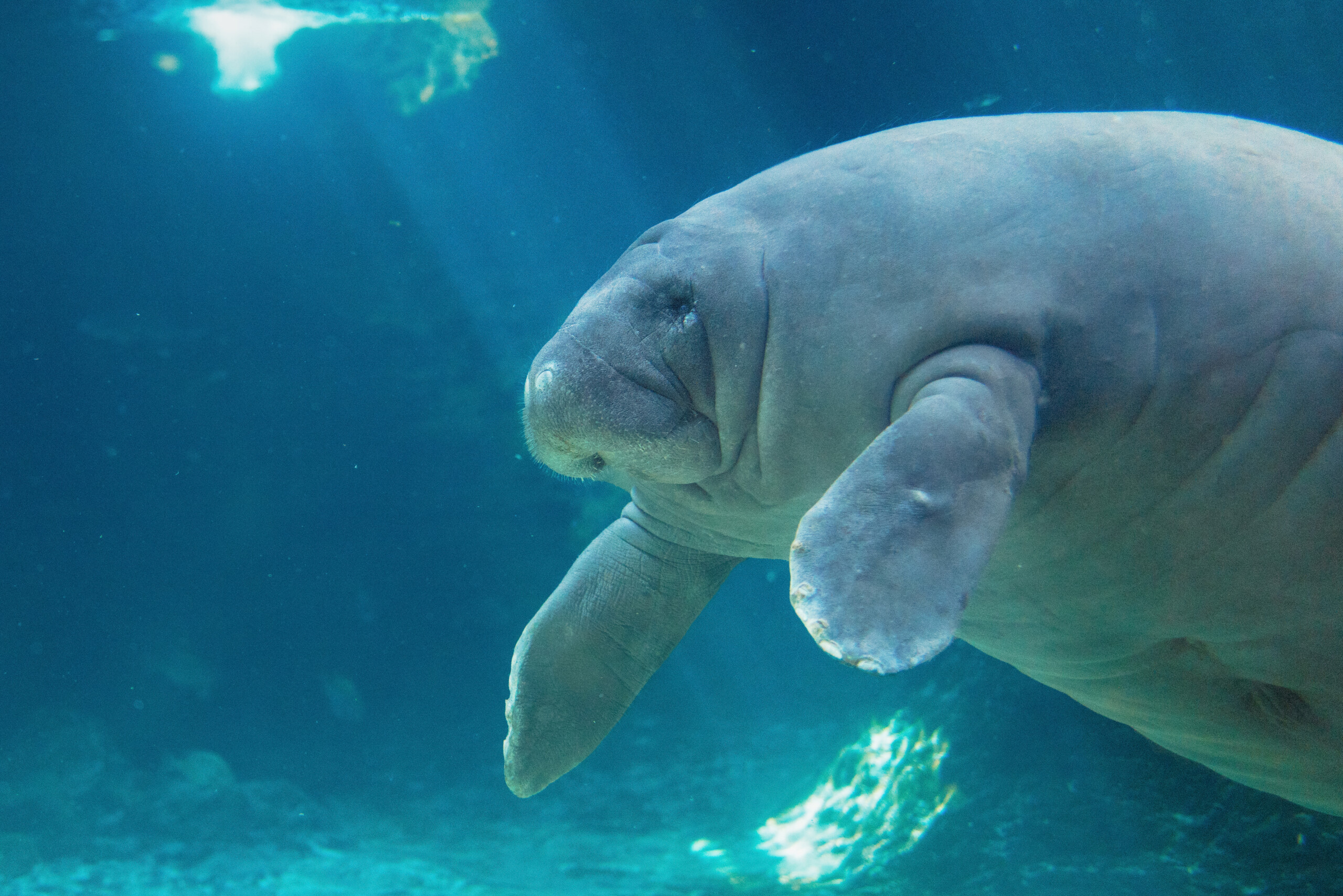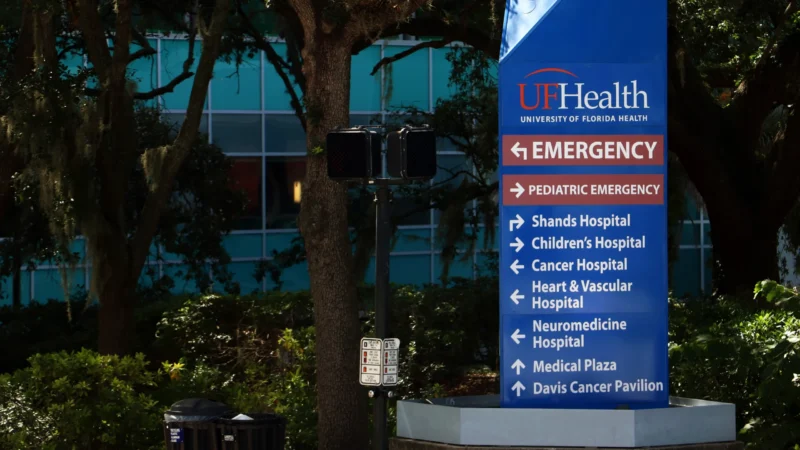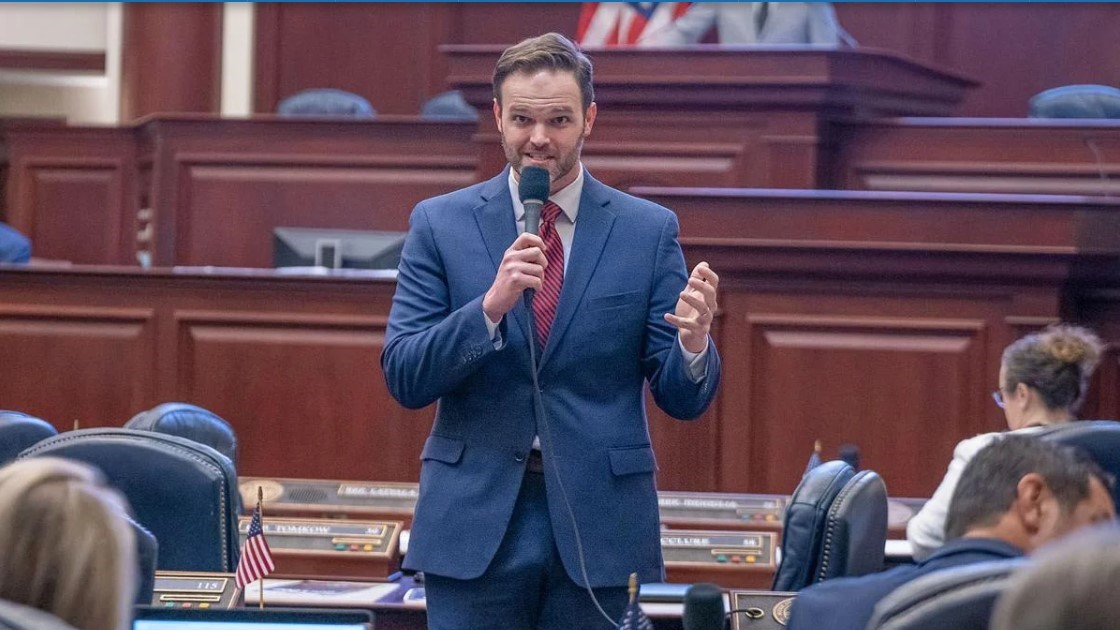Pointing to ongoing threats to manatees, a U.S. district judge Friday said the state has violated the federal Endangered Species Act in its regulation of wastewater discharges into the Indian River Lagoon.
Orlando-based Judge Carlos Mendoza issued a 21-page decision that sided with the environmental group Bear Warriors United, which argued discharges into the waterway along the East Coast led to the demise of seagrass and, as a result, deaths and other harm to manatees.
Mendoza said the Florida Department of Environmental Protection needs to seek what is known as an “incidental take permit” from federal wildlife officials to help minimize effects of discharges on manatees.
The judge wrote that under the Department of Environmental Protection’s regulations, it would take at least a decade for conditions in the northern part of the Indian River Lagoon to start to recover. That area is primarily in Brevard County.
“This is due to the previously and currently permitted discharge of legacy pollutants via wastewater into the north IRL,” or Indian River Lagoon,” Mendoza wrote. “These legacy pollutants caused the death of seagrasses — the manatee’s natural forage — and the proliferation of harmful macroalgae. Legacy pollutants, as their name suggests, persist in the environment and cause harmful effects long after they have entered the system.”
Mendoza added: “What all this means is that (the Department of Environmental Protection) would have to reduce nutrients entering the IRL to a low enough level and for a long enough time for nutrients to cycle out of the system to allow seagrasses to return at significant levels. Conversely, if FDEP does not reduce nutrient levels, there will continue (to) be harmful algal blooms and, in turn, no seagrass recovery and more manatee takings.”
Manatee deaths
Bear Warriors United filed the lawsuit in 2022, contending that the department had not adequately regulated sewage treatment plants and septic systems. Florida had a record 1,100 manatee deaths in 2021, with the largest number, 358, in Brevard County. Many deaths were linked to starvation.
The state had 800 manatee deaths in 2022, before the number dropped to 555 in 2023 and 565 in 2024, according to Florida Fish and Wildlife Conservation Commission data. As of April 4, 282 manatees deaths had been reported this year, including 55 in Brevard County.
Manatees are classified by the federal government as a threatened species.
The state’s attorneys have argued during the lawsuit that Florida has taken steps in recent years to try to reduce discharges into the lagoon and disputed that it has violated the Endangered Species Act. As an example, a state motion for summary judgment last year said the department’s “actions are not the proximate cause of any harm” to manatees.
“The record shows that DEP has not authorized or entitled any party to cause a violation of water quality standards,” the state’s attorneys wrote. “It has, instead, worked diligently to restore an impaired water. There is no proximate cause. DEP is entitled to judgment as a matter of law because with no dispute of material fact, it has not violated (the Endangered Species Act).”
Under federal law, the U.S. Fish and Wildlife Service can approve incidental take permits to allow activities, such as wastewater discharges, that are not designed to “take” animals covered under the Endangered Species Act. But as part of that process, what is known as a habitat conservation plan must be developed to minimize effects on species.
Mendoza described the lawsuit as a “quintessential case in which an (incidental take permit) should be required.”
“As (the state’s) witnesses testified, FDEP is taking important, necessary steps to remediate the polluted waters of the IRL,” Mendoza wrote. “But that is not enough. The north IRL is in such a deteriorated state that the required remediation will take many years, as the state itself has acknowledged. And during that remediation, wastewater discharged pursuant to FDEP’s regulations will continue to indirectly take manatees in the north IRL. … There is a definitive causal link between FDEP’s wastewater regulations and an ongoing risk of manatee takings. While FDEP’s efforts continue, added protection for the manatees is needed. FDEP must obtain an ITP.”







